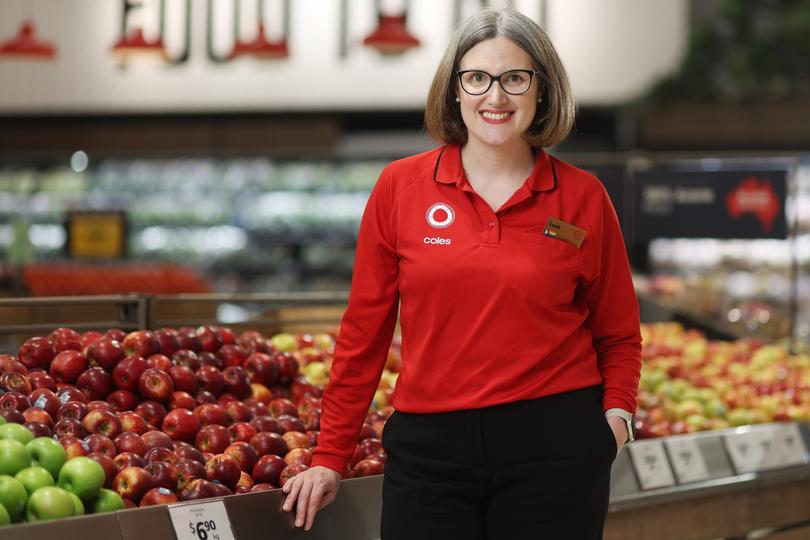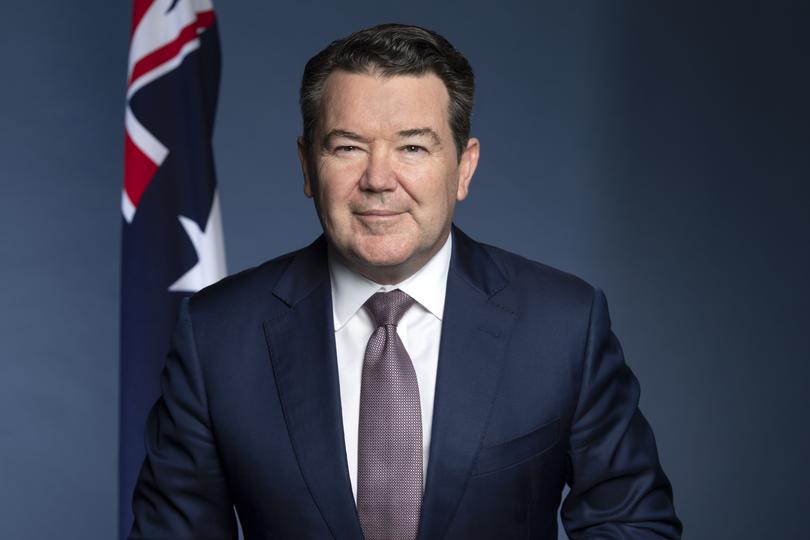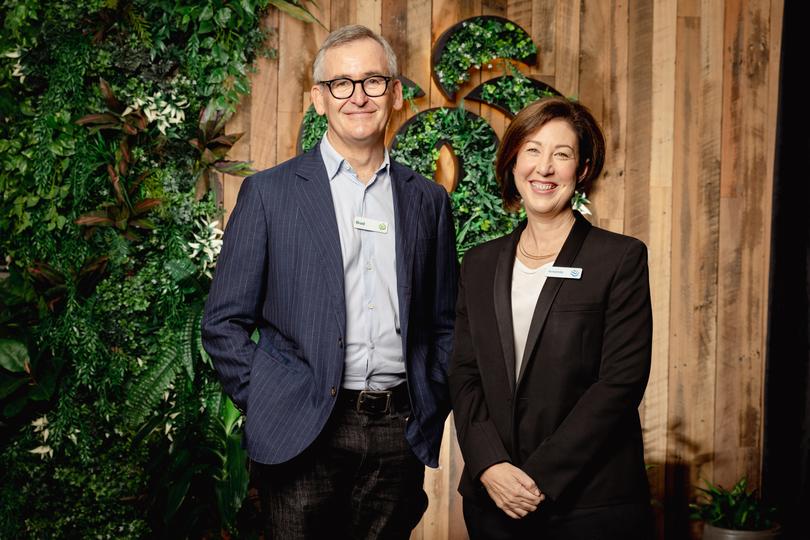The reckoning of Woolworths and Coles has only just begun, as bosses insist competition is strong
Woolworths and Coles have rarely faced such intense scrutiny as they have recently, but the heat is only going to be dialled up further as the year unfolds.

Some customers of a Brisbane shopping centre took to social media in dismay recently when they discovered Coles had bought the centre, and, as part of a redevelopment, would not renew the lease of the IGA that had been there for decades. Coles is itself moving in and bringing to the neighbourhood one of its “ColesLocal” boutique stores.
It’s one of several tactics Coles rival and IGA member Ritchies recently said was a structural challenge. How can it remain a viable competitor when one of the big players can just muscle in with a larger chequebook. Ritchies — which runs 146 stores on the east coast — concedes the Brisbane buy isn’t a takeover but thinks it is one by stealth,claiming it’s one way the majors up market share outside the rules that govern mergers and acquisitions.
“There are two Coles supermarkets less than five minutes’ drive from the Milton Village shopping centre,” Ritchies chief executive Fred Harrison told the Senate in a submission. “The Milton IGA customers are losing their last non-chain supermarket and know that means they also lose any chance of choice and competition in the future.”
Sign up to The Nightly's newsletters.
Get the first look at the digital newspaper, curated daily stories and breaking headlines delivered to your inbox.
By continuing you agree to our Terms and Privacy Policy.
This is just one of many challenges the big supermarkets are facing this year, and analysts have a laundry list of questions for their executives during earnings season. That’s not to mention the rare spectacle of both Brad Banducci of Woolworths and Leah Weckert of Coles subjecting themselves to prime-time television interviews. Mr Banducci has since announced he’ll be stepping down later this year, saving his successor Amanda Bardwell from facing the Senate grilling.
Supermarkets haven’t faced such heightened scrutiny since at least 2008 but the inflation issue has certainly added an extra layer of bitterness in the public debate. Mr Banducci emphasised fresh food inflation was losing pace and Woolworths was prioritising value. Coles reports its half-year results on Tuesday. Both have launched new price cut campaigns already this year.
But where last year there were only updates from the companies four times, Australians are about to see and hear a lot more from Mr Banducci and Ms Weckert. A Greens-led Senate inquiry into supermarket prices — to which Mr Harrison wrote — is expected to begin public hearings late next month, with the chief executives expected to appear in April.
The inquiry has been precipitated by calls this week by Nationals leader David Littleproud to have the supermarkets forcibly broken up, claiming it would create more competition in the sector.

Prime Minister Anthony Albanese on Thursday scotched those suggestions, saying Australia was “not the old Soviet Union”.
WA Liberal Senator Dean Smith, who’s on the committee holding the inquiry, said this week he did “not support divestment powers”.
“I think they are ill-conceived in the Australian context,” he told The West Australian.
Senator Smith plans to pay particular attention to unique WA challenges with the major supermarkets.
“Because we are geographically isolated, supplier challenges are more pronounced in WA,” he said. “It’s clear to me greater transparency over the supplier-supermarket relationship and the nature of perishable goods like fruit and vegetables makes it easier for the supermarkets to leverage against the supplier.”
But he emphasised the big supermarkets also provided crucial services in remote communities, such as Kununurra and Derby, where Coles and Woolworths have outlets.
“There’s a real community service benefit the supermarkets provide,” Senator Smith said. “Any regulatory interventions can’t have unintended consequences of making it harder for the supermarkets to exist across WA. I think most people would agree with that.”
On top of the Senate inquiry, the supermarkets are also facing:
- a review of the grocery code of conduct by former Labor minister Craig Emerson;
- a year-long examination into the sector by the Australian Competition and Consumer Commission, with an interim report in August;
- quarterly price comparison from consumer group Choice;
- separate price inquiries in the SA and Queensland Parliaments, with another in Victoria being debated.
The ACCC is also pushing for more power as the Federal Government reviews merger and acquisition laws and there has already been a union-commissioned price-gouging inquiry by former ACCC boss Allan Fels which concluded supermarkets had not been transparent on price histories of items, and there was insufficient competition in the sector. The Government is also reviewing competition laws.
Ms Weckert this week rejected claims of price-gouging, telling an Australian Retailers Association event in Sydney that customers had “so much choice”, particularly for non-food items — a sentiment Mr Banducci backed up, telling financial analysts supermarkets were losing share to other retailers in some categories.
“I do think it is that level of choice, and that level of competition, which has helped us to keep that food inflation number much lower than other countries,” Ms Weckert said, adding international comparisons were inappropriate given Australia was geographically 30 times the size of the UK, which necessitated “completely different” infrastructure.
Mr Banducci said retailers like Chemist Warehouse had leaned into “traffic builder” categories like household needs, while Ms Weckert pointed to Bunnings expanding into cleaning.
“These everyday needs categories, which is where we are as a supermarket industry losing share to other competitors, which is . . . great for the consumers of Australia,” the Woolworths boss said.
“But we can and need to do more there – and we are certainly very focused on thinking through how execute and do that because that is where it’s most pronounced.”
The failure of Australian competition law to address the issue of creeping acquisitions has had longer terms implications for retail competition and, consequently, supermarket pricing.
The other challenge the inquiries bring to the supermarkets is perception. According to Roy Morgan, Woolworths was Australia’s most trusted brand last year — as it had for been for two prior years — while Coles was third, falling from second as Bunnings edged higher.
“It would be fair to say the announcement of the Senate inquiry has led to a material drop in overall reputation and brand NPS (net promoter scores) for the major supermarket chains in Australia,” Mr Banducci said. “That has been a major factor, and the continued press on the way through.”

Choice — the country’s major consumer advocates and increasingly powerful thanks to the Government’s funding of its price monitoring reports — wants the grocery code to be expanded to non-grocery stores that sell pre-packaged products.
Back in Brisbane, Mr Harrison wants stronger merger laws to ensure “what happened at Milton does not happen again”.
His supplier, Coles and Woolies’ rival Metcash, is advocating for the ACCC to have powers around “creeping acquisitions” — which the watchdog itself said was a concern late last year when it allowed Woolworths’ acquisition of pet company Petstock, which had snapped up rivals without alerting authorities.
“The failure of Australian competition law to address the issue of creeping acquisitions has had longer terms implications for retail competition and, consequently, supermarket pricing,” Metcash said.
